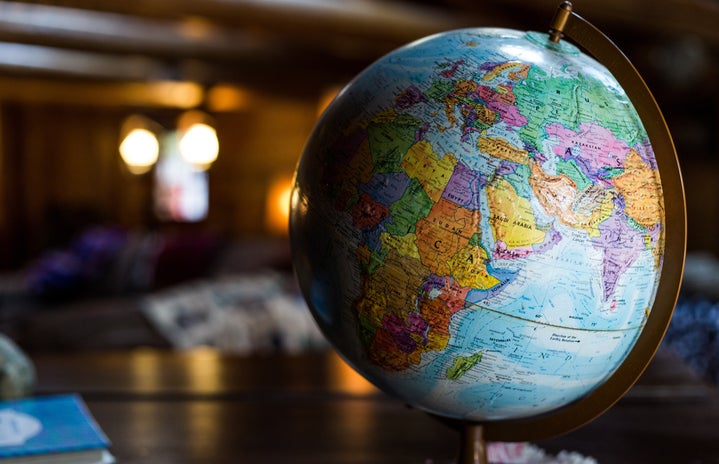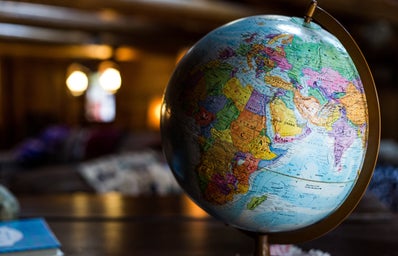We, the Global South, have the largest stakes in the future. Three-fourths of humanity lives in our countries. We should also have an equivalent voice. Hence, as the eight-decade-old model of global governance slowly changes, we should try to shape the emerging order.
Prime Minister Narendra Modi at the opening of the virtual meeting for the Voice of the Global South Summit in January 2023
2023 has been a remarkable year for Indian diplomacy. India’s G20 presidency, its rotating chairmanship of the Shanghai Cooperation Organisation (SCO), and its engagement in various other multilateral meetings have shown the world that India is capable of a seat at the global high table. However, this comes with several challenges as geopolitics is not always a function of happy coincidences. There have been various impediments and changes in recent years such as the COVID pandemic, the Russia-Ukraine conflict, border disputes with China, the global financial crisis, climate change, food security, the rise of AI, and so on.
India, being a rising nation in the fulcrum of global politics, is increasingly seen as a voice of the Global South. The Global South is surely an arena of significance for India, reflected in its recent geopolitical strides. This piece explores India’s foreign policy in terms of the Global South and emphasizes the associated copacetic consequences.
As a student of Political Science, I have a knack for geopolitics. For me, being updated is imperative as we live in an era where India is emerging as a global player. New Delhi was on a geopolitical high in 2023 with India’s G20 Presidency. India was the chair of both the U.S.-led G20 and the China-centered SCO simultaneously. This has led to a surge in India’s stature and reputation because both of these countries are regarded as global forces. This is significant in contemporary world politics as India’s balanced position has been given due consideration in international politics. India’s strength lies in the fact that it has always asserted its right to pursue its interests, free from external domination. Here, Honorable Prime Minister (PM) Narendra Modi’s statement, “This is not an era of war, but an era of dialogue and diplomacy” clearly finds resonance.
“Fall in line, and you will be forgotten” has been the realpolitik idea for many decades, but India has understood the importance of balancing the fault lines of geopolitics in the Global South. In times when the world is more divided, India chose the middle path, or maybe a more difficult path, by maintaining the age-old ties with Russia and also strengthening ties with the West.
However, it is equally important to highlight India’s growing influence in the Global South. It is pertinent to know what the Global South is and India’s role in it. The Global South is a symbolic term that is used to represent the nations of the world with a relatively low level of economic and industrial development. They have a huge population, poor infrastructure, and rampant marginalization. The Global North (rich, prosperous, and the West) vs. the Global South (the developing nations and the erstwhile colonial countries) debate came to light with the realization that the region that has been overlooked by the West must be regarded with the utmost attention now. India, with its empathy and shared values, presents itself as an alternative and strategic buffer (maintaining a balance of power and cooperation) that many countries in the Global South can rely on without worrying that they will have to choose sides. India is the fifth largest and the fastest-growing economy in the world, with a GDP of over three trillion dollars. It showcased a proactive response by administering vaccine doses to a large part of the population. ‘Made in India’ vaccines were sent to about 100 countries, helping others in times of disaster (Vaccine Maitri). This proposes the possibility of India being a suitable leader for the Global South. Our Hon’ble Minister of External Affairs, S. Jaishankar, in his book Why Bharat Matters? used the term ‘Vishwa Mitra’ (A universal friend or a friend to everybody) for India. In India’s context, the term refers to the country seeking the well-being of the Global South and contribution to global good.
The Voice of the Global South Summit, hosted by India under its G20 Presidency, was virtually held in January 2023 with representatives from 125 countries. This portrayed the vision of India for prioritizing the Global South and representing the stance of the region. India’s G20 goals included debt relief for developing nations that have been hit by the pandemic, waiver of intellectual property rights for future pandemics, and climate financing. Our G20 message, ‘Vasudhaiva Kutumbakam’— one earth, one family, one future, showcases how the G20 has had an inclusive leadership and a sustainable approach towards accommodating all the nations and working towards development together. The Global South becomes the central point of attention as it faces many challenges – geopolitical rivalries, climate change, poverty, hunger, corruption, infrastructure, education, etc. Prime Minister Modi during his visit to Paris in July 2023, highlighted the economic hardships that the Global South is facing and stated, “The rights of the Global South have long been denied.”
India’s independence and the aftermath of its foreign policy need to be studied to know how they have evolved. The policy of Non-Alignment was a tool for India to detangle itself from worldly affairs that could harm its national interests, primarily economic development. After decolonization, India was left in a miserable condition. This made her focus on domestic challenges and issues, rather than on geopolitics. India’s foreign policy was hugely impacted and radically renegotiated after the end of the Cold War and the Soviet experiment. Along with its military might and economic prowess, India also wanted to play a global role. India had always raised its voice for the decolonized world and sought to promote global disarmament, peaceful resolution of disputes, and economic development. But now, India’s position and goals have completely changed. Its constructive role in regional and multilateral forums like the G20, QUAD, BRICS, SCO, etc., clearly shows the transition from non-alignment to multi-alignment and protectionism to openness. Indeed, she still faces various challenges but thrives to be a global power that stakes its legacy on the Global South imprint.
Hon’ble PM Narendra Modi’s visit to Papua New Guinea for a summit with Pacific Island nations in May 2023 gave us an indication of ‘why’ India can lead the Global South through its foreign policy. The ceremonial welcome given to PM Modi by Papua New Guinea’s PM James Marape was notable. The strengthening of these relations can act as a bridge between the Global South and Indo-Pacific Region. Considerable foreign policy goals can be achieved if India continues to have bilateral and multilateral ties with multiple countries. This will not only advance India’s position on the global stage but can also help in the negotiations for conflicts and disputes. India’s constructive role as a mediator and negotiator can be utilized in the geopolitical arena.
The use of the phrase ‘Global South’ marks a shift from a focus on development and cultural differences to geopolitical power relations. The world is also grappling with geopolitical tensions, an economic slowdown, energy crises, food shortages, and climate change. These challenges require the joint response of all the countries. India has been able to forge a united, equal, balanced, and inclusive approach through its G-20 presidency. The world needs peace, just like people need air and sunshine. Only by following the right path and working together to pursue peace, safeguard peace, and share peace, can countries achieve their developmental goals and make contributions to the world. Dialogue and diplomacy offer great hope for addressing international disputes peacefully, and India has proved this. There must be a win-win cooperation among all the countries that helps peaceful development and cooperation.
Time is not measured by the passing of years but by what one does, what one feels, and what one achieves.
Pt. Jawaharlal Nehru, the first Prime Minister of independent India


